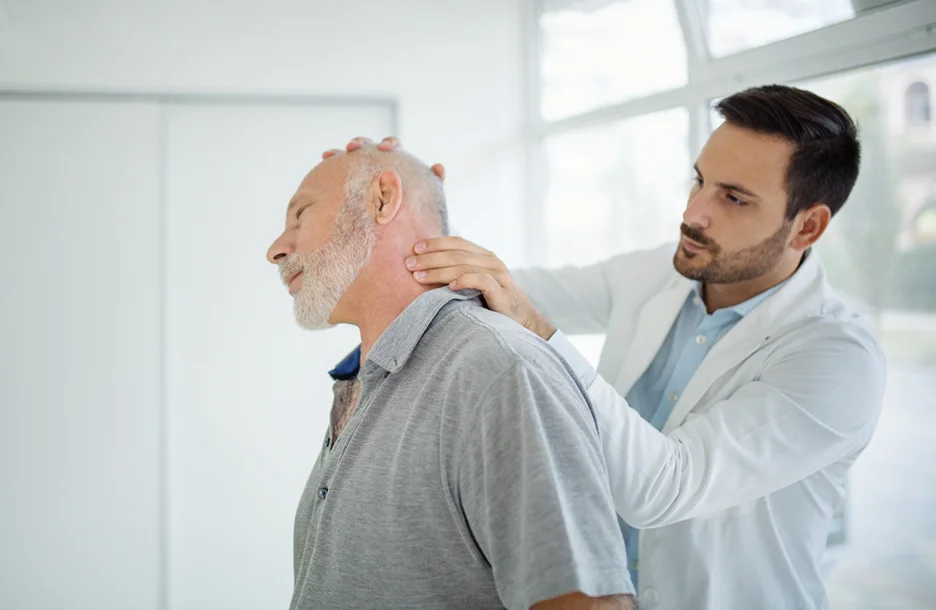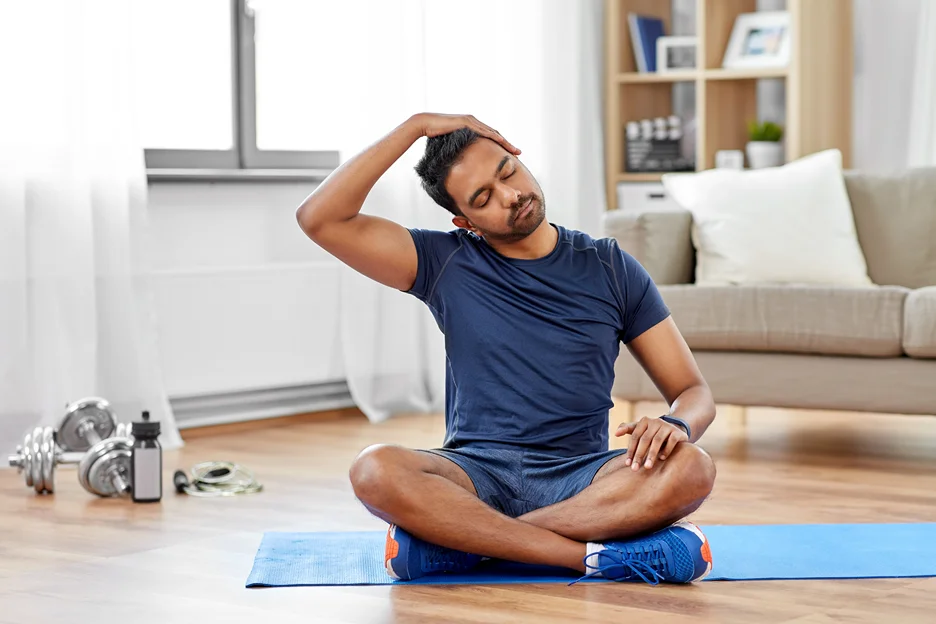Suffering From Pain and Stiffness in Your Neck Muscles? Here’s What You Need to Know for Relief
If you’re one of the many people who frequently experience aches and tightness in your neck, you know how painful and limiting this condition can be. Stiff, contracted neck muscles don’t just cause local discomfort – they can trigger headaches, numbness, and pain that radiates down your shoulders and arms.
This in-depth guide covers everything you need to know about neck muscle pain, from underlying causes to symptoms to the best treatment options. Read on to finally stop suffering and start feeling better.
Neck Muscle Pain: What’s Really Going On?
Before you can properly treat and prevent neck muscle pain, it helps to understand what’s causing those muscles to get so stiff and painful in the first place. Here are some of the most common culprits:
Poor Posture Overworks Your Neck
One of the biggest contributors to neck muscle pain is poor posture – particularly prolonged bad posture. When you slouch with your head and shoulders forward, it puts a tremendous load on your neck muscles as they strain to support your head weight. Over time, this constant overload triggers muscle spasms, inflammation, and pain.
Injuries Directly Strain Your Neck
Sudden injuries in your neck area often cause or aggravate muscle pain. Whiplash from a car accident is a prime example, as the abrupt back and forth motion damages muscles and tendons. Sports injuries, falls, and other trauma can also directly strain the delicate neck muscles.
Medical Conditions Cause Secondary Muscle Pain
Sometimes neck muscle pain stems from underlying medical conditions that affect the joints and nerves of your neck. These include:
| Condition | Cause/Description | Symptoms |
| Arthritis Inflammation | Wears down cartilage in the cervical facet joints | Pain and stiffness in neck, reduced range of motion, clicking/popping sounds |
| Fibromyalgia | Central nervous system disorder that makes muscles overly sensitive to pain stimuli | Chronic widespread muscle pain, fatigue, sleep issues, memory problems |
| Spondylosis | Age-related degeneration of the cervical vertebrae and discs | Neck stiffness and pain, numbness/tingling radiating down arms |
| Herniated Disc | Ruptured disc pressing on spinal nerve roots | Shooting neck/arm pain, muscle weakness, numbness |
| Spinal Stenosis | Narrowing of the spinal canal compresses nerves | Pain, cramping, numbness in neck, shoulders, arms |
| Myofascial Pain Syndrome | Trigger points develop in neck muscles and cause regional pain | Muscle knots and taut bands in neck and upper back |
| Whiplash | Sudden hyperextension and flexion of the neck | Neck muscle strains and spasms, headache, reduced mobility |
The inflammation, nerve compression, and muscular trigger points caused by these conditions can refer pain into the neck muscles, leading to secondary muscle spasms and loss of flexibility. Proper diagnosis is key to successful treatment.
Overuse Strains Your Neck Over Time
Repetitive motions and sustained awkward neck positions slowly strain the muscles until pain develops. “Text neck” – constantly looking down at phones – is a common form of overuse. Poor ergonomics at work that have you craning your neck can also contribute.
Recognizing the Symptoms of Neck Muscle Pain
Neck muscle pain has some distinctive symptoms that help set it apart from nerve-related neck pain. Here are the major signs:
- Tight, stiff, contracted muscles in the neck area
- Muscle spasms and knots in the neck and shoulders
- Tenderness when pressing on the affected muscles
- Reduced range of motion when turning or bending the neck
- Headache that starts at the base of the skull and radiates up
As the pain worsens, you may also experience:
- Migraines triggered by neck tension
- Numbness or tingling radiating down the arms and fingers
- Shooting pain between the shoulders and neck
- Clicking or popping sounds when moving the neck
How Neck Muscle Pain Is Diagnosed

To pinpoint the cause of your neck muscle pain, your doctor will typically conduct a series of diagnostic tests including:
Range of Motion Assessments
The doctor will have you turn and bend your neck in different directions. They observe for any limitations or pain with movement. This identifies restricted mobility that can indicate muscle strains.
Muscle Palpation Exam
The physician will palpate and massage the neck and shoulder muscles. Checking for tightness, knots, spasms, and trigger points helps locate specific muscles involved in generating the pain.
Imaging Tests
X-rays, CT scans, or MRIs of the cervical spine are used to assess alignment, disc health, bone spurs, and nerve impingement. This identifies any anatomical abnormalities contributing to pain.
Nerve Function Tests
These assess nerve conduction and response in the arms and hands. Checking for numbness, tingling, weakness, and reduced reflexes helps diagnose potential radiculopathy or neuropathy.
Medical History Review
The doctor will ask about prior neck injuries, trauma, and chronic conditions. Identifying risk factors like arthritis, fibromyalgia, poor ergonomics rules out underlying disorders that may be causing referred neck muscle pain.
Identifying any contributing structural issues, nerve compression, or related conditions allows the doctor to recommend optimal pain management and therapeutic approaches to treat the root cause.
Finding Effective Relief for Painful Neck Muscles
The good news is there are many ways to find relief from strained, aching neck muscles. A combination of different therapies often works best. Options include:
Over-the-Counter Medications
OTC pain relievers like NSAIDs (ibuprofen, naproxen) and muscle relaxants can help ease acute muscle pain and spasms. Ibuprofen or naproxen should be taken at regular intervals to maintain a consistent level of pain relief.
Physical Therapy
PT utilizes stretching, exercises, manual therapy, and massage to relax tight muscles and improve range of motion.
Specific PT interventions include postural retraining, manual cervical traction, and joint mobilization techniques. Ultrasound and electrical stimulation may also be used to warm and relax muscles while promoting healing.
Posture Correction
Proper neck posture reduces strain on muscles. Techniques like chin tucks and wall angels help strengthen the correct neck musculature while encouraging better alignment.
Using small reminders like posture braces or monitoring with a mirror can help ingrain improved posture habits.
Heating Pads and Ice Packs
Heat boosts blood flow to relax muscle spasms and loosen tightness. Cold therapy reduces inflammation that contributes to muscle pain. Alternate heated packs with ice packs on the sore muscles for 10-15 minutes at a time for the best relief.
Complementary Treatments
Options like chiropractic adjustments, acupuncture needle therapy, and therapeutic massage can relax muscles and promote healing after injury. Targeted yoga poses and exercises help gently stretch tight muscles while strengthening weak or imbalanced neck muscles.
Effective Ways to Prevent Neck Muscle Pain
Once you’ve experienced painful neck muscle spasms and limited mobility, you never want it to happen again. Here are proactive tips for prevention:
Maintain Proper Neck Posture
Make conscious efforts to avoid slouching your neck forward as you sit at a desk or look at your phone. Keep your head balanced evenly above your torso. Use posture reminders and take frequent standing breaks to reinforce good neck position.
Take Regular Movement Breaks
If you do repetitive tasks, change positions and stretch your neck often. Set reminders on your computer or phone if needed to prompt you to stand up and move around at least once per hour.
Optimize Your Work Setup
Use ergonomic keyboards, chairs, and monitors that reduce strain on your neck. Keep screens positioned at eye level to avoid constant looking up or down. Adjust work stations heights and seating to match your proportions.
Do Neck Strengthening Exercises
Build strong neck and upper back muscles through targeted exercises using resistance bands, yoga, or bodyweight movements. Aim for exercises that improve posture and expand range of motion as well as strength.
Manage Stress and Relax Muscles
Relaxation techniques like deep breathing, massage, and mindfulness meditation help loosen chronically tense muscles. Stress management also reduces muscle tension caused by anxiety and poor sleep.
Answers to Your Most Common Neck Muscle Pain Questions
If you’re suffering from chronic or acute neck muscle stiffness and soreness, chances are you still have some lingering questions about the best ways to get relief.
Here are answers to some frequently asked questions about managing this condition:
What exercises are most effective for neck muscle pain?
Targeted stretches that expand the range of motion – like chin tucks and side bends – combined with isometric exercises that strengthen neck muscles work well. Start gently.
When should I consider seeing a doctor for neck muscle issues?
See a doctor promptly if you experience severe pain along with numbness or loss of coordination. Also seek medical care if over-the-counter meds don’t relieve pain within a few days.
Could my stiff neck muscles be a sign of a serious problem?
While it’s usually just routine muscle tension, in rare cases it can indicate meningitis, Lyme disease, or connective tissue disorders. Seek medical care if your pain is severe or accompanied by neurological symptoms.
What home remedies provide the most neck pain relief?
Heat therapy, OTC pain relievers, gentle stretches, and massages are a good place to start. Maintain good posture and sleep position. Avoid activities that aggravate the pain.
Find Lasting Relief for Your Neck Muscle Pain

Life is hard enough without having to constantly deal with a stiff, achy neck. With some diligence about your posture, work setup, exercise routine, and managing stressors – combined with targeted treatment when pain flares up – you can minimize episodes of debilitating neck muscle pain and get back to enjoying your normal activities pain-free.
